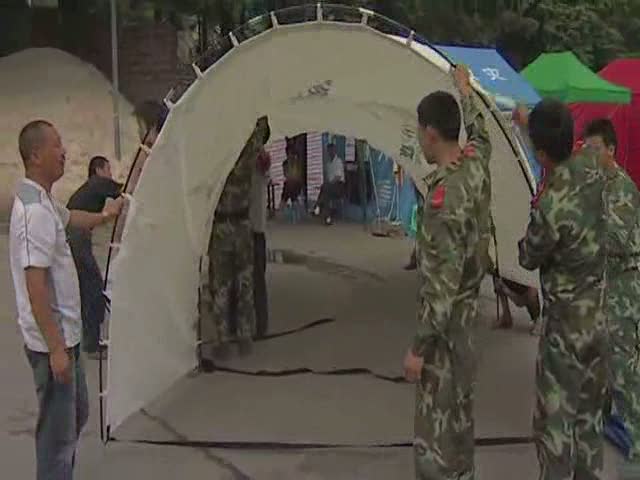- Text size
 |
|  |
|  |
| 
- Français
Asian refugees get a boost from Beijing Olympics
News Stories, 27 August 2008

BEIJING, China, August 27 (UNHCR) – The medals have all been awarded and the sports heroes are heading home, but thousands of refugees in Asia will remember the Beijing Olympics for a long time to come: thanks to the Olympic athletes, they will have new clothes to wear.
Under the "Giving is Winning" campaign, the UN refugee agency and the International Olympic Committee (IOC) have collected more than 82,000 items of sports clothing for refugees.
Individual athletes and National Olympic Committees – particularly those from Australia, Japan, New Zealand and host China – donated 30,000 items during the August 8-24 Beijing Olympics. This was in addition to 52,000 items collected in the year-long run-up to the Games, with the total far exceeding the original goal of collecting 50,000 articles of sports clothing.
"It is really wonderful to see Olympic athletes expressing solidarity with refugees who often spend years languishing in bleak camps around the world," said Veerapong Vongvarotai, UNHCR's China-based regional representative. "For the refugees, these are not only useful items of clothing, but a symbol that people in the world beyond the refugee camps – especially famous athletes from the Olympics – care about them."
During the Games, biodegradable plastic bags and information leaflets were placed in the room of every athlete in the Olympic Village so that athletes could make individual donations.
Athletes proved they didn't have to come from medal powerhouses to be winners for refugees. Donations came in from competitors from Andorra, Armenia, Bermuda, Costa Rica, El Salvador, Mauritius and Turkmenistan, as well as much larger countries.
Wang Yue, a second year accounting student at Nanjing Audit University, volunteered to help sort the donations for UNHCR. "I've wanted to do something for refugees ever since I saw them in a movie," she explained.
The collection of sports clothing from National Olympic Committees will continue until the end of the year, so the total donation from the "Giving is Winning" campaign could continue to grow. The items collected before the Olympics opened were distributed to refugees in Rwanda, Tanzania, Chad, Moldova, Georgia and Panama. The latest 30,000 donations will be distributed in Asia.
The "Giving is Winning" initiative was first established at the Athens Olympics in 2004 when more than 30,000 items were collected to support sports among young refugees in Afghanistan, Azerbaijan, Eritrea, Kosovo and Tanzania.
In a warehouse in the Olympic Village late last week, carefully folding tee-shirts into stacks by sizes for shipping to refugees in other parts of Asia, UNHCR volunteer Cai Ce said he was excited to be part of the Olympics and help refugees at the same time.
"Though the work is tiny, I enjoy it very much," said the Renmin University student. "If there is a chance to do more for refugees, I would like to do it."
By Kitty McKinsey in Beijing, China



































